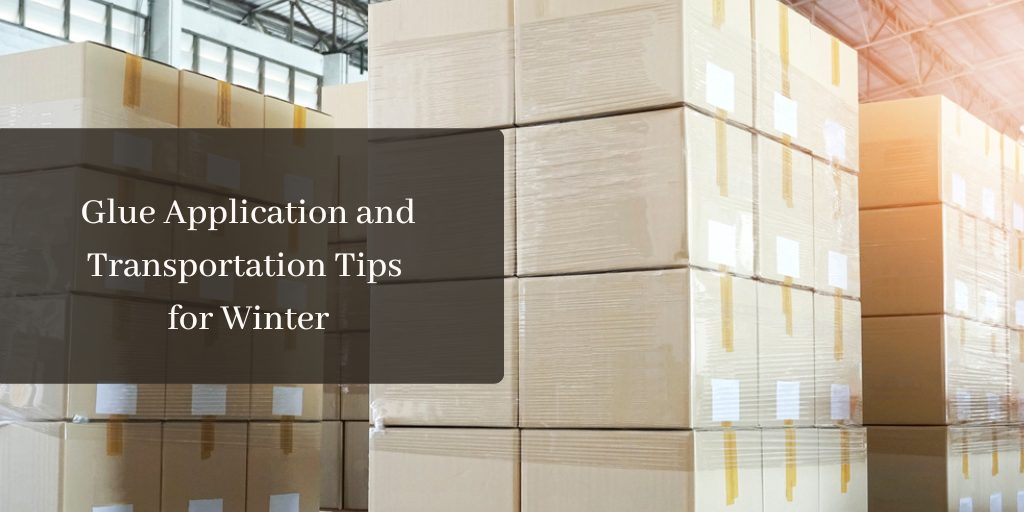Winter weather introduces unique challenges for industries relying on protein and liquid water-based glues. As temperatures drop and humidity levels fluctuate, the application and storage of these eco-friendly glues become critical factors in maintaining production efficiency.
Let’s delve deeper into essential tips for using protein and liquid glue during the winter months, along with precautions for transporting them in cold weather.
Using Protein Glue in the Winter
1. Adjusting Glue Pot Temperature
Protein glue may exhibit faster drying in colder months characterized by reduced humidity. To address this issue, consider raising the temperature of the glue pot. However, it's essential to exercise caution and not exceed temperatures of 155°F-160°F to prevent the glue from burning.
2. Humidifying the Manufacturing Area
Combatting dry air is crucial during winter. Introducing humidifiers to the manufacturing area can help regulate the glue's drying speed and improve adhesion. This step is particularly valuable in environments that lack climate control.
3. Diluting the Glue
When it's not feasible to humidify the plant, an alternative is to dilute the glue to lower its solids content. This adjustment allows for more water in the glue, preventing it from drying out too rapidly. Careful consideration must be given to maintain the desired adhesive properties. A refractometer is the best way to measure glue solids to ensure proper adhesion.
4. Applying More Glue to Rollers
To extend the stickiness of the glue during winter, increase the amount applied to rollers. However, it's essential to strike a balance and keep the application under 3 mils to avoid excessive waste or the creation of messy seams in the production process. A Mil Depth Gauge is a crucial piece of equipment used to measure the film thickness of glue.
5. Staging Glue Before Application
Avoid putting frozen or cold protein glue directly into the glue pot. Instead, stage the glue at room temperature before application. This practice prevents production delays and ensures optimal performance.
Using Liquid Glue in the Winter
1. Preventing Freezing
Liquid water-based glues are highly sensitive to cold weather. To prevent freezing, it's crucial to inspect the glue upon arrival. Any signs of crystallization or a lumpy consistency indicate potential freezing during transit, rendering the glue unusable.
2. Proper Storage Conditions
Maintaining proper storage conditions is paramount for liquid glue. Store it in a temperature-controlled area, ideally around 60°F. Additionally, ensure that substrates used in production are kept at the recommended storage temperature, as indicated in technical data sheets.
Transporting Glue in Cold Weather
Different glues have specific shipping requirements. At LD Davis, we take steps to ensure your glue arrives in good condition, but winter weather can create challenges.
Protein glue can tolerate cold temperatures and will not spoil when frozen, making it easier to ship during the winter than other types of adhesive. Before using the protein glue in a glue pot, it should be closer to room temperature. Leave the packaged protein glue your team intends to use out overnight to thaw before use the next day.
Liquid glue is more difficult to ship during the winter, especially internationally. Liquid glues are water-based, and if they freeze, the glue spoils. We recommend working with a national glue provider during winter months and in colder climates to prevent spoilage. For long-distance clients, glue can be shipped earlier in the work week to avoid freezing, but you should coordinate with your supplier.
Staying Productive and Proactive All Year Long
Implementing these comprehensive tips for protein and liquid glue applications throughout the winter can significantly contribute to maintaining optimal production processes.
Temperature plays a significant role in the application of adhesive year-round. Whether adjusting temperatures, humidifying, or preventing freezing during transport, a proactive approach ensures your glues arrive in working condition and contribute to seamless operations.
For more information, personalized assistance, or to inquire further about our practices, contact our experts at LD Davis. We are dedicated to enhancing your manufacturing processes and ensuring your glue applications thrive even in the coldest of winter weather.



